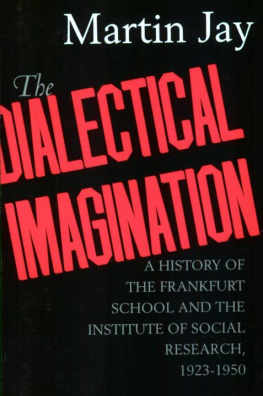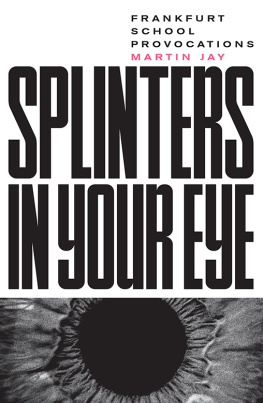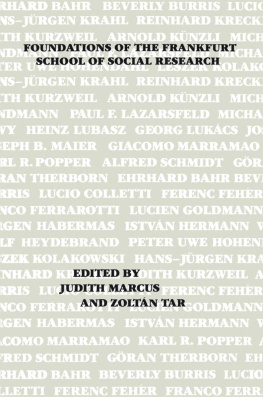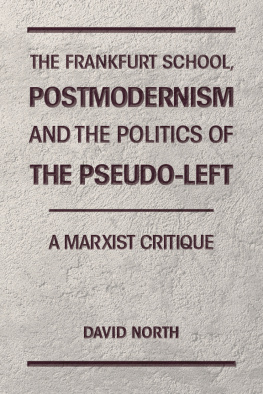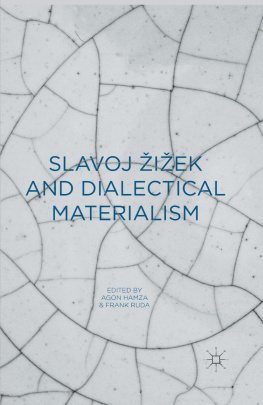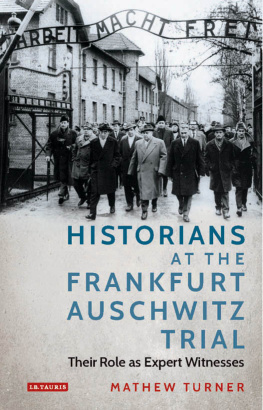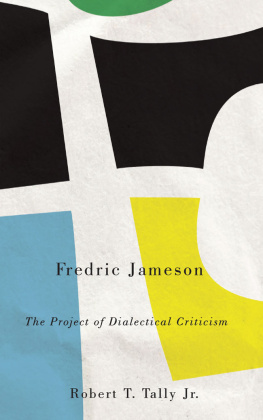WEIMAR AND NOW: GERMAN CULTURAL CRITICISM
Martin Jay and Anton Kaes, General Editors
1. Heritage of Our Times, by Ernst Bloch
2. The Nietzsche Legacy in Germany, r89o-1990, by Steven E. Aschheim
3. The Weimar Republic Sourcebook, edited by Anton Kaes, Martin Jay, and Edward Dimendberg
4. Batteries of Life: On the History of Things and Their Perception in Modernity, by Christoph Asendorf
5. Profane Illumination: Walter Benjamin and the Paris of Surrealist Revolution, by Margaret Cohen
6. Hollywood in Berlin: American Cinema and Weimar Germany, by Thomas J. Saunders
7. Walter Benjamin: An Aesthetic of Redemption, by Richard Wolin
8. The New Typography, by Jan Tschichold, translated by Ruari McLean
9. The Rule of Law under Siege: Selected Essays of Franz L. Neumann and Otto Kirchheimer, edited by William E. Scheuerman
10. The Dialectical Imagination: A History of the Frankfurt School and the Institute of Social Research, 1923-1950, by Martin Jay
11. Women in the Metropolis: Gender and Modernity in Weimar Culture, edited by Katharina von Ankum
12. Letters of Heinrich and Thomas Mann, 1900-1949, edited by Hans Wysling, translated by Don Reneau
13. Empire of Ecstasy: Nudity and Movement in German Body Culture, 1910-1935, by Karl Toepfer
14. In the Shadow of Catastrophe: German Intellectuals Between Apocalypse and Enlightenment, by Anson Rabinbach
15. Walter Benjamin's Other History: of Stones, Animals, Human Beings, and Angels, by Beatrice Hanssen
16. Exiled in Paradise: German Refugee Artists and Intellectuals in America from the 1930s to the Present, by Anthony Heilbut
17. Cool Conduct, by Helmut Lethen, translated by Don Reneau
MARTIN JAY







To my parents, Edward and Sari Jay
Xi
xxv
xxvii
xxxiii
Chapter 303
I arrived in Berkeley for the first time in August 1968, a twenty-four year old graduate student, invited by Leo Lowenthal to examine his extensive personal archive of materials from the Institute of Social Research. As I spent long hours poring over years of letters and unpublished manuscripts, amassing questions about figures, events and ideas that Lowenthal patiently answered, the world outside was convulsed by a series of cataclysmic events. On the 21st of August, tanks from the Soviet Union and its allies rumbled into Prague, violently ending the experiment in "Marxism with a Human Face" that had so captivated the imaginations of non-doctrinaire leftists earlier that year. Only a few days later as "the whole world was watching," the Democratic convention in Chicago was disrupted by protestors enraged by both President Johnson's policies in Vietnam and the likelihood that the party's nominee, Hubert Humphrey, would continue his predecessor's sorry course.
On the daily walk from my apartment to Lowenthal's office, I passed the forlorn, now empty Berkeley campaign headquarters of Robert Kennedy, whose assassination two months earlier had meant the end for many of the hopes that fundamental change might come, in the catchphrase of the time, by "working within the system." The Berkeley campus was itself a site for escalating confrontations between students and authorities egged on by a state administration headed by then Governor Ronald Reagan. In the surrounding community, the Black Panther Party was an insistent presence, bearing witness to the still volatile racial tensions that had exploded into ghetto riots after the murder of Martin Luther King, Jr. that spring.
The pressure of these circumstances was impossible to ignore as I made my way through the treasure trove of documents Lowenthal generously put at my disposal. The Frankfurt School had just begun to emerge into public consciousness as a theoretical inspiration-still, to be sure, only dimly understood--of the New Left here and abroad. Its impact was, in fact, now spreading well beyond the confines of academia.' When I arrived in Berkeley, one of the main protagonists in the story I hoped to tell, Herbert Marcuse, was in hiding from death threats in Lowenthal's summer home in Carmel Valley. Only a few months before, during the "events" of May in Paris, student enrages had displayed placards emblazoned with the names "Marx/Mao/Marcuse." Pilloried by the anti-Communist Right in California, which sought to terminate his contract at the University of California, San Diego campus. Marcuse was also the target of increasingly virulent attacks by the orthodox Left. Despite the principled support he extended to his controversial former student and Communist Party leader, Angela Davis, he was denounced for having abandoned the proletariat as agent of revolution. Marcuse, it soon became evident to me, was equally a source of uneasiness for most of his former Institut colleagues who were alarmed by his outspoken political militancy.
A few months later after a semester back at Harvard, I readied myself to leave for Europe to continue research in Frankfurt and Montagnola, Switzerland. Shortly before my departure in January 1969, I happened to be at a party in New York, where I was introduced to Mark Rudd, the fiery leader of the Columbia student uprising who was soon to embark on the desperate, self-destructive adventure that was called the Weather Underground. When I told him of my dissertation project, he contemptuously responded that Adomo and Horkheimer were craven sell-outs, who had betrayed the revolutionary cause; Adorno's very change of name from the Jewish-sounding Wiesengrund, Rudd snarled, betokened his cowardice.
Such sentiments turned out to be all too common in the Frankfurt where I settled in early February. A number of university buildings were occupied in an on-going "active strike" that led to improvised courses in Marxist theory and practice. The Sociology Department had been rebaptized "the Spartacus Department" after the militants of the early Weimar years. On January 31st, the Institut fur Sozialforschung itself had been taken over by radical students-or so thought its anxious directors, Adorno and Ludwig von Friedeburg, who had called the police to clear the building. Although it turned out to be just an embarrassing misunderstanding (the students were only looking for a place to hold a discussion), the gulf between the current leadership of the Frankfurt School and their unwanted progeny widened still further. The effects were obvious when Jurgen Hahermas, still under fire for his imprudent condemnation of "left fascism," showed me the lock on his office phone to prevent students who might break in from making long-distance calls. Adorno also nervously refused to allow me to tape our conversations for fear that he might leave "verbal fingerprints."

